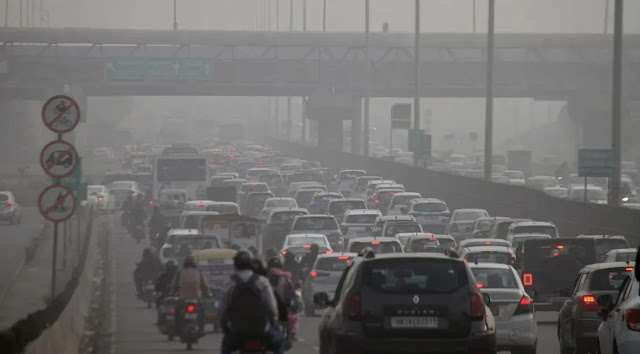As pollution levels decreased, the Center's air quality panel scaled back GRAP Stage 3 limitations in Delhi-NCR; but, Stage 1 and 2 controls are still in place to stop future degradation.
Following a drop in pollution levels in the capital city and surrounding areas, the Centre's panel on air quality in Delhi-NCR announced on Sunday that Stage 3 limitations under the Graded Response Action Plan (GRAP) would be lifted, according to an official statement.With the 24-hour average air quality index (AQI) on Sunday at 4 and 5 p.m. standing at 339 and 335 respectively, Delhi's air quality has improved, and the trends suggest that the AQI values will continue to decline.
Restrictions under Stages 1 and 2 will continue to be in effect, according to the Commission for Air Quality Management, which is in charge of reducing air pollution in Delhi-NCR.
Delhi's AQI is expected to stay in the 'bad' category (between 200 and 300) in the days ahead, according to forecasts from the India Meteorological Department and IIT Madras, the CAQM added.
Stage 3 limitations have been loosened, allowing BS-III gasoline and BS-IV diesel four-wheelers to operate throughout Delhi and the National Capital Region.
Strict procedures were put in place to reduce air pollution under the GRAP-3 standards. These included prohibiting non-essential diesel generator sets, non-essential construction and demolition activities, and the use of non-clean fuels in brick kilns and enterprises.
It was strictly forbidden to burn waste and biomass in the open, and diesel trucks carrying non-essential items were not allowed to enter Delhi. Under Stage 3 requirements, schools were also directed to switch to a blended learning style for classes up to Grade 5.
However, in order to prevent future declines in AQI levels, all relevant agencies in the entire NCR will continue to implement, monitor, and review the actions under Stages I and II of the amended GRAP. The commission stated that all implementing agencies must maintain a close watch and particularly step up their efforts under Stages I and II of the updated GRAP.








0 Comments